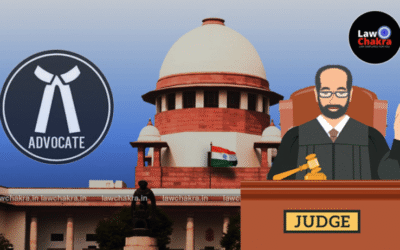BNS Section 37: Acts against which there is no right of private defence.
Acts against which there is no right of private defence
(1) There is no right of private defence,
(a) against an act which does not reasonably cause the apprehension of death or of grievous hurt, if done, or attempted to be done, by a public servant acting in good faith under colour of his office, though that act, may not be strictly justifiable by law;
(b) against an act which does not reasonably cause the apprehension of death or of grievous hurt, if done, or attempted to be done, by the direction of a public servant acting in good faith under colour of his office, though that direction may not be strictly justifiable by law;
(c) in cases in which there is time to have recourse to the protection of the public authorities.
(2) The right of private defence in no case extends to the inflicting of more harm than it is necessary to inflict for the purpose of defence.
Explanation 1
A person is not deprived of the right of private defence against an act done, or attempted to be done, by a public servant, as such, unless he knows or has reason to believe, that the person doing the act is such public servant.
Explanation 2
A person is not deprived of the right of private defence against an act done, or attempted to be done, by the direction of a public servant, unless he knows, or has reason to believe, that the person doing the act is acting by such direction, or unless such person states the authority under which he acts, or if he has authority in writing, unless he produces such authority, if demanded.
Example:
Police officer stops Vijay for a check and does not hurt him. Here, Vijay cannot claim self defence.
Key Points on BNS-37 (Restrictions on the Right of Private Defence)
BNS-37 outlines specific restrictions on the right of private defence, ensuring that self-defence cannot be abused and is used within legal boundaries.
1. No Right of Private Defence Against Public Servants
- Clause (a): No right of private defence can be claimed against acts committed by public servants who are acting in good faith and within the scope of their office. Even if their actions may not be strictly legal, as long as their actions do not cause a reasonable fear of death or grievous hurt, self-defence is not allowed.
- Clause (b): The same applies when a public servant directs someone else to perform an act. If the direction does not reasonably cause fear of death or grievous harm, then private defence cannot be used.
2. No Private Defence When Public Authorities Can Be Reached
- Clause (c): If public authorities (like the police or courts) can be reached and there is enough time to seek their help, the right to private defence cannot be exercised. This ensures that people do not take the law into their own hands when they can get proper help from legal institutions.
3. Excessive Harm Not Permitted
- Clause (2): Even when the right to private defence exists, a person is not allowed to inflict more harm than necessary. The response must be proportional to the threat faced. If excessive force is used, it may not be justified as self-defence.
Important Definitions:
- Public Servant Acting in Good Faith: Refers to government officials who are performing their duties honestly, even if their actions are technically not legal.
- Apprehension of Death or Grievous Hurt: The reasonable belief or fear that someone’s life or physical well-being is at serious risk.
- Recourse to Public Authorities: Seeking help from legal institutions like the police or courts when there is time and opportunity.
Conclusion:
BNS-37 ensures that the right to private defence is not abused. It limits the use of self-defence in certain situations, like against public officials acting in good faith, or when public authorities can be reached. It also emphasizes that defensive actions should be proportional to the threat, preventing excessive harm. This ensures that private defence remains a fair and reasonable right, not one used to justify excessive force or taking matters into one’s own hands when other options are available.
Final Thought:
BNS-37 ensures that self-defence is used in appropriate circumstances and within limits. The law balances personal safety with the need to respect public authority and legal processes, keeping defensive actions justified and proportional to the situation.


